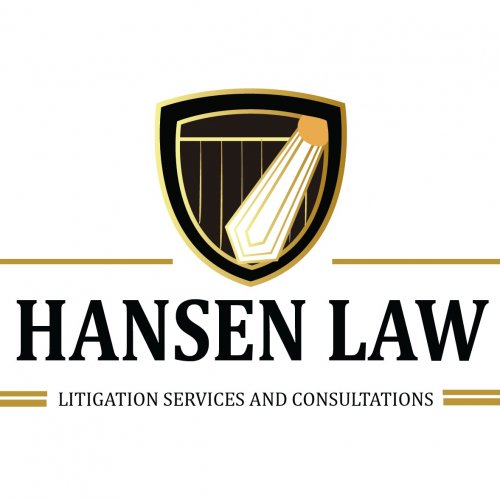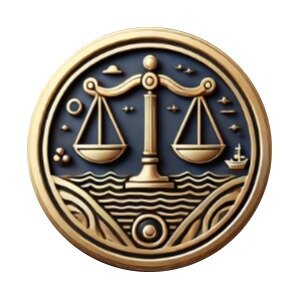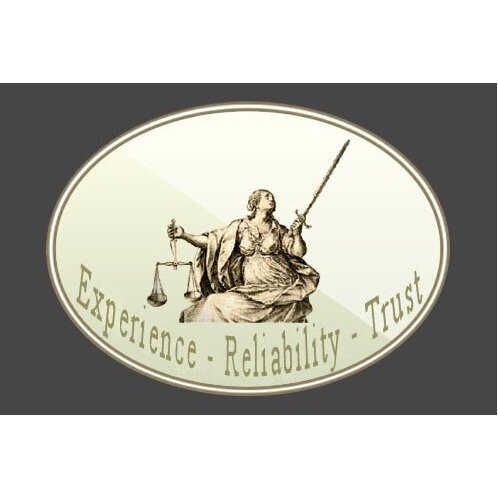Best Landlord & Tenant Lawyers in Pattaya
Share your needs with us, get contacted by law firms.
Free. Takes 2 min.
Free Guide to Hiring a Real Estate Lawyer
List of the best lawyers in Pattaya, Thailand
Thailand Landlord & Tenant Legal Questions answered by Lawyers
Browse our 2 legal questions about Landlord & Tenant in Thailand and read the lawyer answers, or ask your own questions for free.
- Terminate Lease Agreement
- Hello, I'm the owner of a villa and want to evict my tenant based on the following clause of the agreement: "In the event of a breach of these obligations by the TENANT, or if the property is used in a manner deemed abusive, the OWNER reserves the right to... Read more →
-
Lawyer answer by SORASAK LAWFIRM
We, SORASAK LAW OFFICE AND INTERNATIONAL CONSULTANT CO., LTD, Legal firm located in Bangkok. We have experience and have been providing a wide range of legal services to both Thai and foreign clients for 20 years. Yours Faithfully,
Read full answer - Break my lease
- How can I break my lease? I have a one-year lease that I just signed in Oct. My owner will not pay for broken items such as my cooktop which is 10 yes old he made me pay for it and he will not fix my door lock. So can... Read more →
-
Lawyer answer by SJ Law Experts
SJ Law Experts, Islamabad Thank you SJ Law Experts, Islamabad [Advocates, Legal Advisors & Immigration Lawyers]
Read full answer
Thailand Landlord & Tenant Legal Articles
Browse our 4 legal articles about Landlord & Tenant in Thailand written by expert lawyers.
- How to Write a Lease Agreement in Thailand: A Step-by-Step Guide
- A legally enforceable contract, which in this case we are referring to a lease agreement, specifies the terms and circumstances under which a landlord leases a property to a tenant. To be enforceable in Thailand, the lease agreement must take care to follow local rules and legislation including the Thai... Read more →
- How Foreigners Can Own Property in Thailand
- For foreigners considering property ownership in Thailand, understanding the process and relevant laws is crucial. These laws are not typically compared to the property ownership laws of other countries, as the Kingdom strictly regulates which foreigners can own property, the circumstances under which they can do so, and the types... Read more →
- The Importance of Rental Contracts in Thailand: Why You Need Them and What to Include
- The contents of this guide based on our knowledge and experience of the legal rental market in Thailand will explain the nuances of rental agreements in Thailand, taking into account both the laws that apply and the experience of seasoned expats and visitors. Whether you are a first-time renter in... Read more →
About Landlord & Tenant Law in Pattaya, Thailand
Landlord and tenant law in Pattaya, Thailand, is an essential aspect of the country’s real estate sector, dealing primarily with the rental of property. This legal framework is designed to protect the interests of both landlords and tenants by regulating rental agreements, obligations, and rights. Pattaya, known for its vibrant expatriate community and tourist attractions, has a dynamic property rental market where understanding the nuances of local laws can be crucial for successful tenancy. Both Thai nationals and foreigners must be aware of their specific rights and obligations under these laws to ensure smooth and legally compliant rental transactions.
Why You May Need a Lawyer
There are several reasons why you might need legal assistance in landlord and tenant matters in Pattaya, Thailand. Common scenarios include:
- Disputes over lease agreements, such as disagreements on terms or breaches of contract.
- Eviction processes, which require adherence to legal protocols to be enforceable.
- Problems with property maintenance or repair responsibilities.
- Issues regarding rent increases or security deposit returns.
- Understanding complex legal documents or terms written in Thai.
- Navigating the legal expectations and regulations as a foreign investor or tenant.
- Negotiating lease renewals or terminations to ensure favorable terms.
Having a lawyer can provide clarity, protect your rights, and help prevent costly legal missteps.
Local Laws Overview
The landlord and tenant laws in Pattaya, as part of Thailand's broader legal system, are largely governed by the Civil and Commercial Code. Key aspects include:
- Lease Agreements: These must generally be in writing if the lease duration is longer than three years, though shorter leases can be verbal.
- Rental Security Deposits: While common, there is no specific statutory requirement, but usual practice involves paying a deposit equal to one or two months' rent.
- Tenant Rights: Tenants have the right to habitable premises and can seek repair or maintenance from landlords when necessary.
- Landlord Obligations: Landlords must ensure the property is fit for its intended use and comply with health and safety regulations.
- Eviction Process: Eviction requires legal proceedings and a court order; landlords cannot forcibly remove tenants without due process.
- Rent Control: There is no strict rent control, but increases must be reasonable and agreed upon in the lease terms.
Frequently Asked Questions
What should a lease agreement include in Pattaya?
A lease agreement should include the lease duration, rent amount and payment terms, security deposit details, landlord and tenant responsibilities, and any other specific clauses related to property usage and maintenance.
Can a landlord increase my rent before the lease ends?
Unless otherwise stipulated in the lease agreement, landlords generally cannot increase rent during the term of a fixed-period lease. Rent increases typically occur at contract renewal.
What are my rights if my landlord doesn't repair my apartment?
If the property becomes uninhabitable, or repairs are neglected, a tenant can demand repairs and may be entitled to compensation or rent reduction. Legal action may be required if the landlord remains unresponsive.
How does eviction work in Pattaya?
Eviction in Pattaya can only occur through a proper legal process, usually involving a court order. Landlords cannot self-evict tenants by changing locks or cutting off utilities.
Is a foreigner allowed to rent property in Pattaya?
Yes, foreigners can rent property in Pattaya, but they need to comply with immigration laws and ensure all rental agreements align with Thai legal requirements.
What happens to my security deposit after my lease ends?
The security deposit should be returned upon lease termination, barring any damage or outstanding rent. Disputes over deposit returns are common and may require mediation or legal action.
Can I sublease my rented property?
Subleasing is generally permissible if explicitly allowed in the lease agreement. Tenants should seek clarity or permission from the landlord to avoid breach of contract.
Do lease agreements have to be in Thai?
While lease agreements in Thailand are often in Thai, a dual-language contract (English-Thai) can be used, especially with foreign tenants. Ensure both parties understand the terms.
What documentation is required for renting property?
Typically, tenants need to provide identification (passport for foreigners), proof of income, and references. Landlords may also require a copy of a visa or work permit.
Are there tenant associations or bodies that can help?
While no specific tenant association is known in Pattaya, the Department of Land or local legal aid organizations can offer guidance and resources for tenants in need of advice.
Additional Resources
For further assistance and detailed information, consider reaching out to the following resources:
- Department of Land: Offers resources and information on property laws in Thailand.
- Consumer Protection Board: Can assist with consumer rights issues related to rental agreements.
- Local Real Estate Agencies: Provide advisory services for navigating the rental market.
- Legal Aid Centres: Provide free or low-cost legal advice to residents in Pattaya.
Next Steps
If you need legal assistance in landlord and tenant matters in Pattaya, it is advisable to consult with a lawyer experienced in Thai property law. Preliminary steps include:
- Gather Documentation: Collect all relevant documents such as your lease agreement, communication records, and receipts.
- Seek Initial Advice: Contact a local legal aid organization or real estate consultant for initial guidance.
- Hire a Lawyer: Engage a reputable lawyer who specializes in landlord-tenant law to assess your case and represent your interests.
- Negotiate Solutions: Attempt to resolve disputes amicably through negotiation or mediation if possible.
Taking these steps helps ensure your rights are protected and any disputes are effectively resolved.
Lawzana helps you find the best lawyers and law firms in Pattaya through a curated and pre-screened list of qualified legal professionals. Our platform offers rankings and detailed profiles of attorneys and law firms, allowing you to compare based on practice areas, including Landlord & Tenant, experience, and client feedback.
Each profile includes a description of the firm's areas of practice, client reviews, team members and partners, year of establishment, spoken languages, office locations, contact information, social media presence, and any published articles or resources. Most firms on our platform speak English and are experienced in both local and international legal matters.
Get a quote from top-rated law firms in Pattaya, Thailand — quickly, securely, and without unnecessary hassle.
Disclaimer:
The information provided on this page is for general informational purposes only and does not constitute legal advice. While we strive to ensure the accuracy and relevance of the content, legal information may change over time, and interpretations of the law can vary. You should always consult with a qualified legal professional for advice specific to your situation.
We disclaim all liability for actions taken or not taken based on the content of this page. If you believe any information is incorrect or outdated, please contact us, and we will review and update it where appropriate.
















